The colour of an object is the colour it reflects, while other colours are absorbed. White reflects all the colours of the spectrum, while black absorbs all the colours, reflecting very little back.
Visible white light from the sun consists of seven colours: red, orange, yellow, green, blue, indigo and violet. When white light hits a white object, all the colours are reflected back. When white light hits a red object, red is reflected back, and the other colours are absorbed.
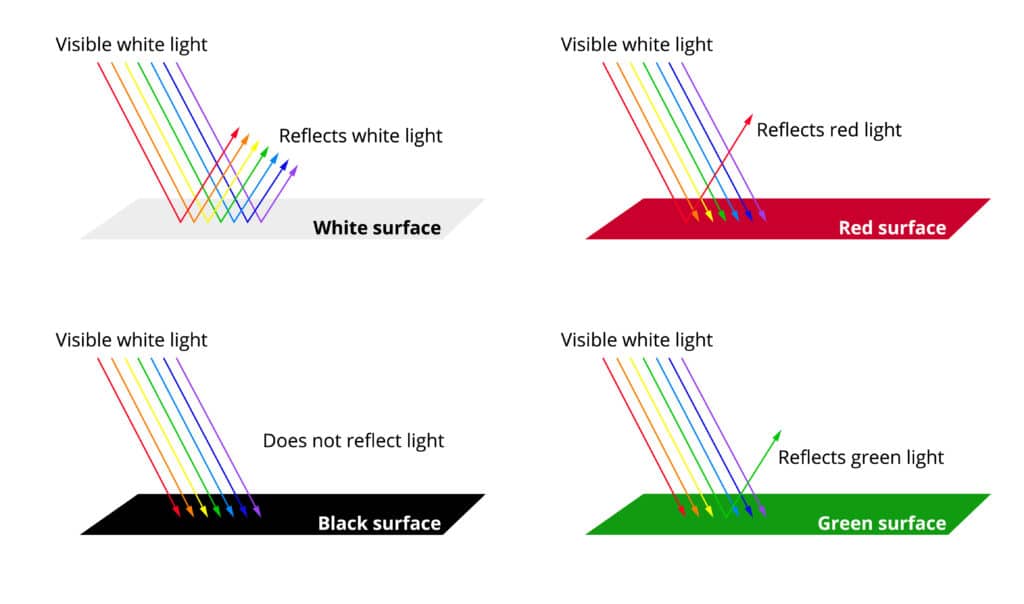
It’s thought that humans can see around 1 million different colours!
In this investigation, ice cubes are placed on black and white paper plates to demonstrate that a black surface absorbs heat faster than a white surface, which reflects most of the light and heat away.
Colour and temperature investigation
You’ll need
Two equal sized ice cubes
Black and white paper plates or cardstock.
Timer
Sunny day
Instructions
Find a sunny spot and place one ice cube on a square of black card and one on a square of white card. Both ice cubes must be in direct sunlight or both in the shade.
Time how long each ice cube takes to melt.
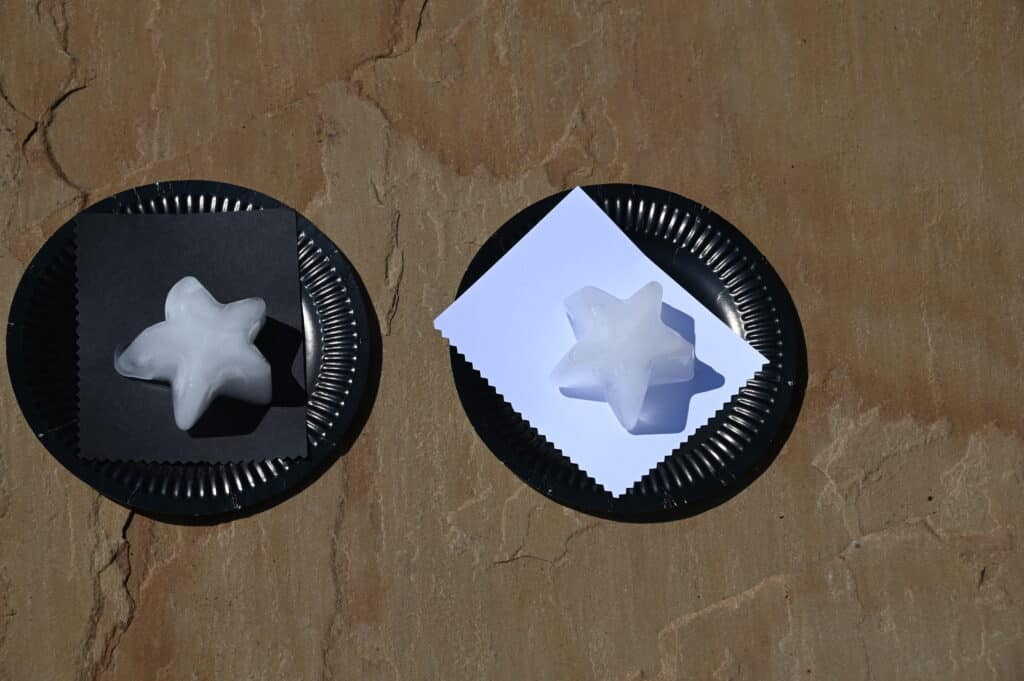
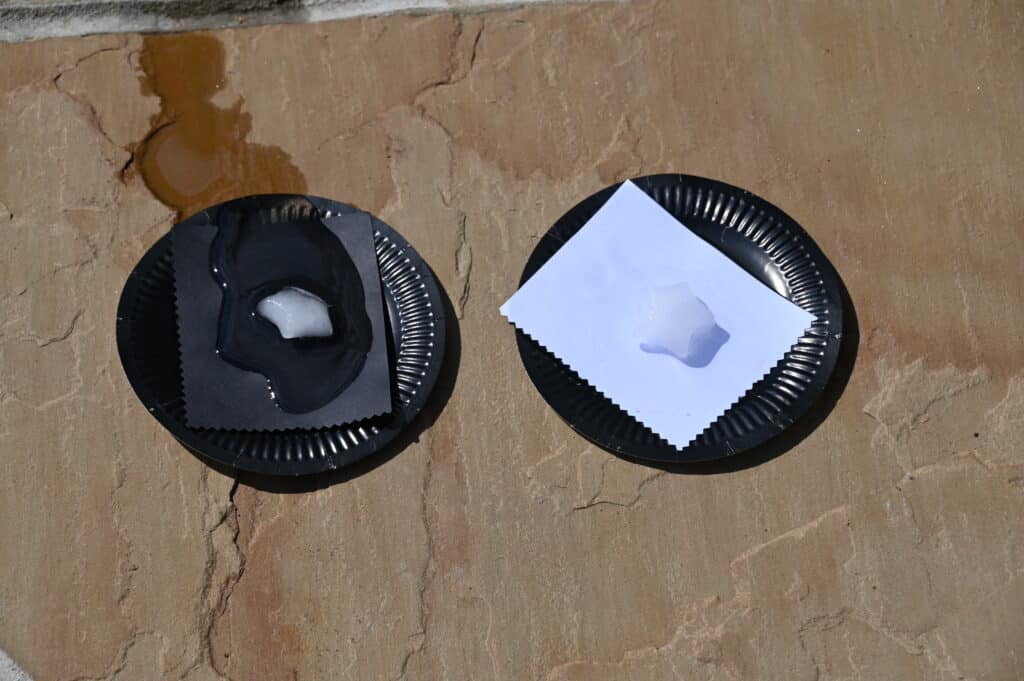
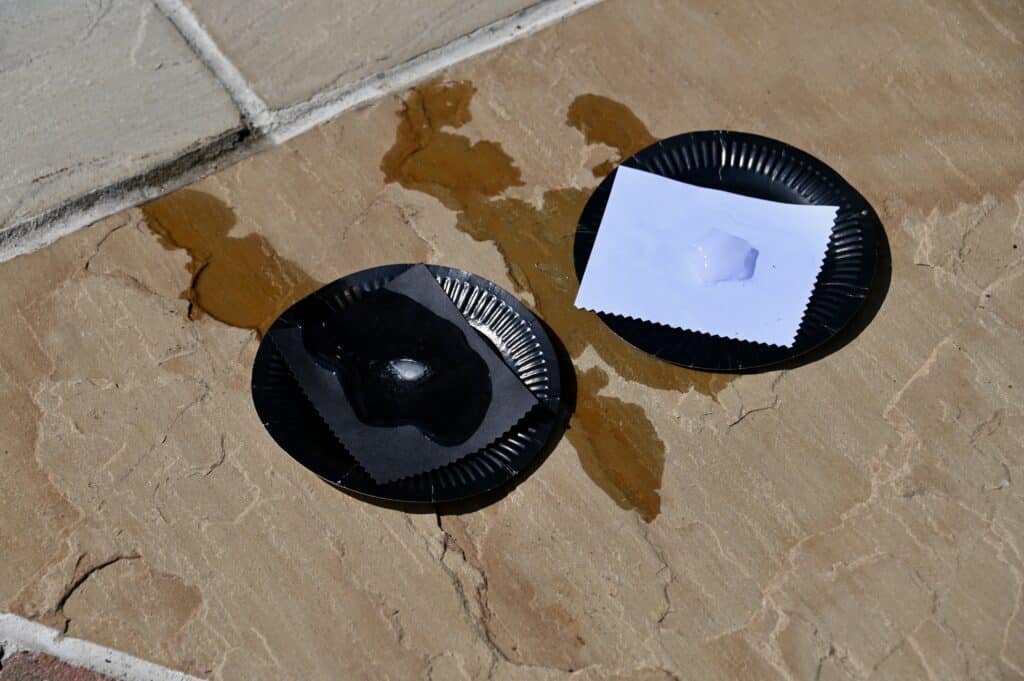
The photos show that the ice cube on the black card melted much faster than the one on the white card, which is what we expected to happen. The black card heated up faster than the white and melted the ice cube more quickly.
Extension tasks
Try the activity again using more colours.
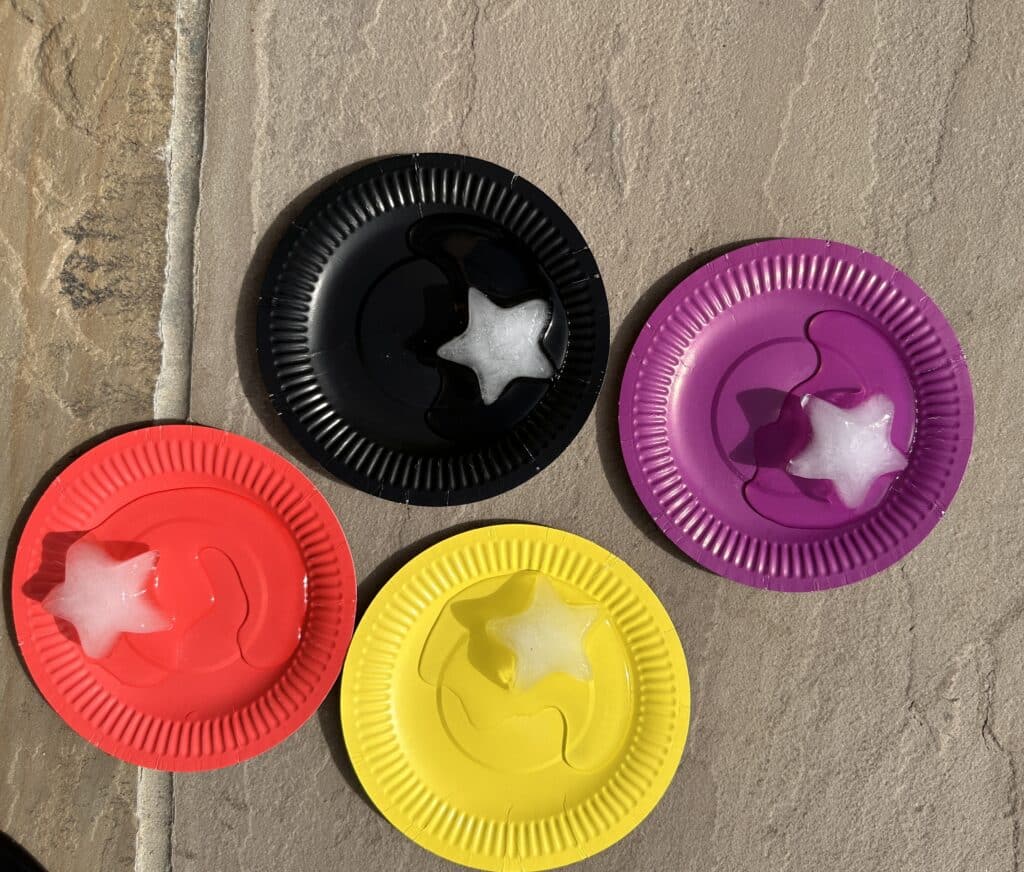
Design a t-shirt for a hot day, thinking about the best colours to use. Remember, black absorbs heat, and lighter colours reflect it.
More easy science for kids
See first-hand how light travels in straight lines with a light maze.
Find out how to make a rainbow on a sunny day.
Find out where visible light is on the electromagnetic spectrum.
Science concepts
Light
Electromagnetic spectrum
Vision
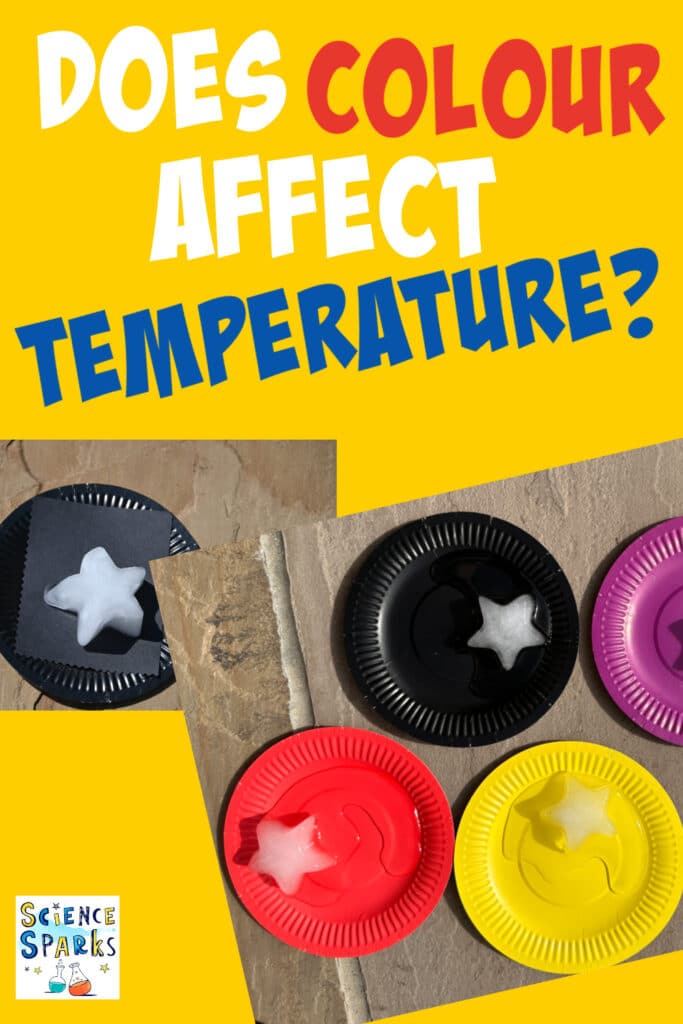
Last Updated on July 3, 2024 by Emma Vanstone


